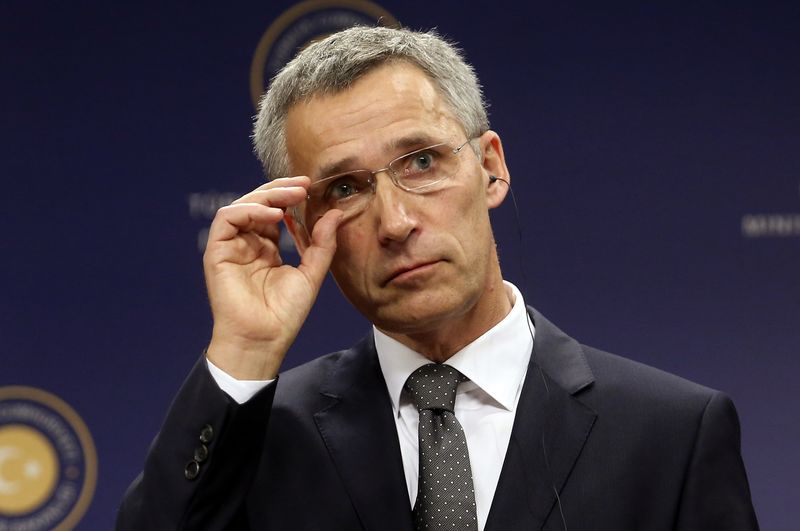By David Ljunggren
OTTAWA, April 4 (Reuters) - NATO is not aiming to isolate Russia after a nerve agent attack on a former Russian agent and his daughter in Britain last month but had to crack down to show its unhappiness with Moscow, Secretary-General Jens Stoltenberg said on Wednesday.
The alliance last week expelled seven diplomats from the Russian mission to NATO and cut the maximum size of the delegation to 20 from 30 after the attack, which the West blames on Moscow, although the Kremlin denies it. continue to strive for a better relationship with Russia because Russia is our neighbor, Russia is there to stay. We are not aiming at isolating Russia," Stoltenberg said in remarks at the University of Ottawa.
Stoltenberg said NATO was concerned by a more assertive Russia that he said had annexed Crimea, destabilized eastern Ukraine, backed Syrian President Bashar al-Assad and meddled in the affairs of other nations.
"That was the reason why NATO allies and partners reacted the way they reacted after the attack in Salisbury. Because that is not a single event," he said. "It is an attack which has taken place (against) the backdrop of a pattern of behavior which we have seen over many years from Russia."
More than 100 Russian diplomats have been expelled by Western countries to punish the Kremlin over the March 4 attack in Salisbury, England.
NATO suspended all practical military and civilian cooperation with Russia after the 2014 annexation of Crimea from Ukraine.
Stoltenberg later met Canadian Prime Minister Justin Trudeau, whose government expelled four diplomats after the Salisbury attack. speaking to reporters after the meeting, complained that Russia was spreading a "wave of interference and propaganda" against the roughly 450 Canadian troops stationed in Latvia as part of a NATO mission.
Trudeau also said Canada would "continue to reflect on the impact and the efficiency of sanctions" and was open to more discussions on what else it could do.
Trudeau, who did not give more details, noted that Canada enacted a law last year allowing the government to penalize those it says are guilty of human rights violations.
In November, Ottawa used the law to impose sanctions against 30 Russian officials who it said were complicit in the 2009 prison death of Sergei Magnitsky, an anti-corruption lawyer who was jailed after alleging a massive tax fraud.
